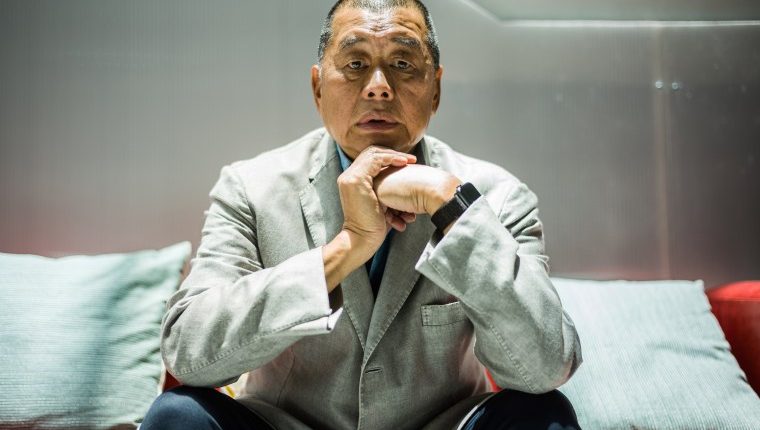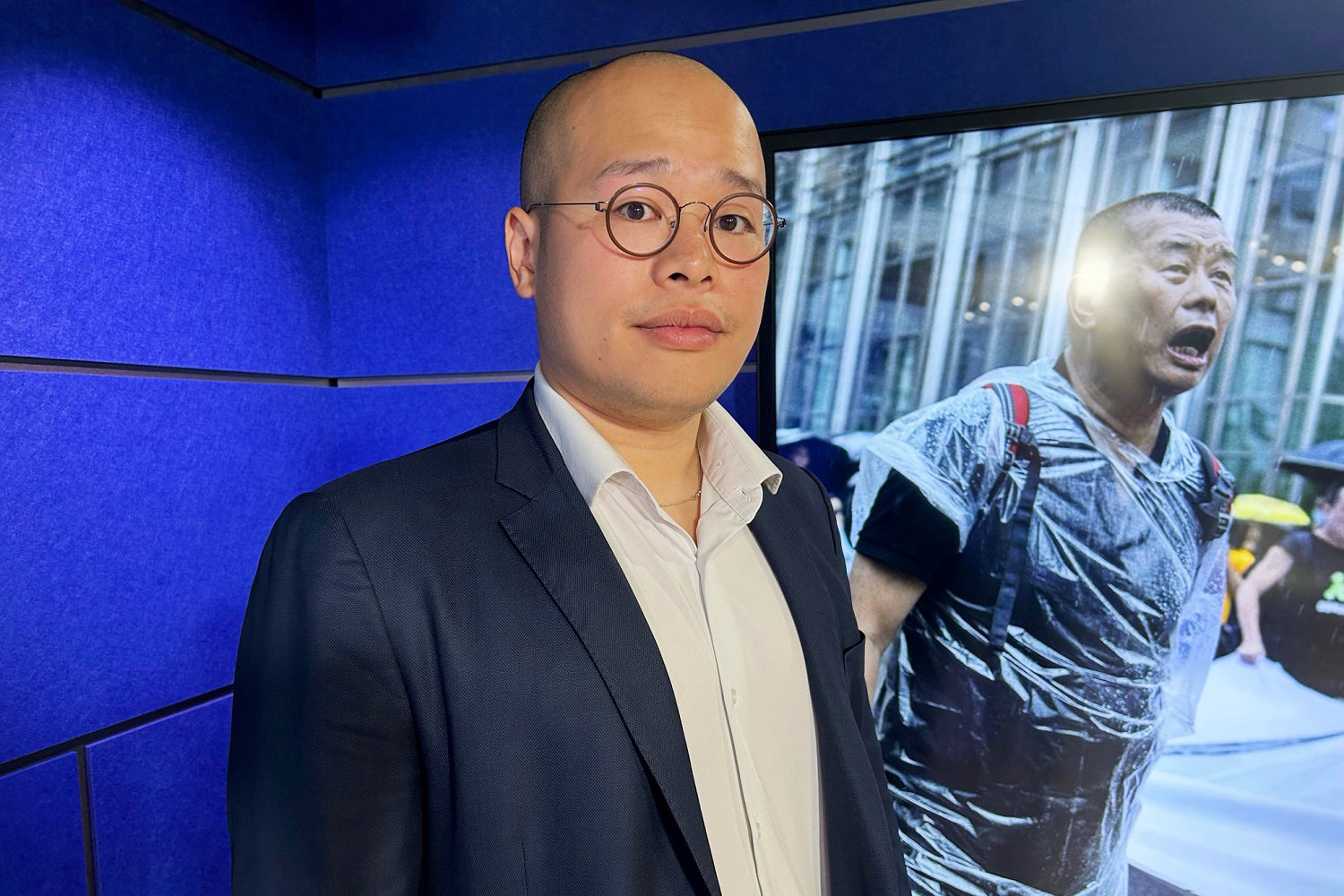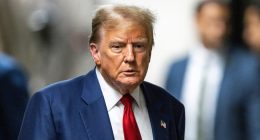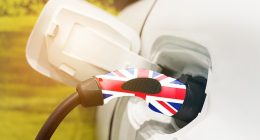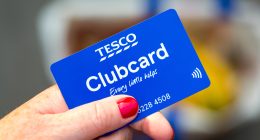The son of jailed Hong Kong pro-democracy campaigner and publisher Jimmy Lai says his father “refuses to be cowed” by Chinese authorities as he marks 1,000 days behind bars and faces the threat of life imprisonment.
In an interview with NBC News in London, Sebastien Lai said his father, a wealthy businessman with British citizenship, could have easily fled Hong Kong to avoid a crackdown on pro-democracy activists but chose to stay to fight for his beliefs.
“For someone to give up everything he has to stand up for freedom is an incredibly rare thing,” said the younger Lai who lives in Taiwan. “I think a lot of people understand what’s at stake and understand that my father should not be in prison.”
Held in solitary confinement at Hong Kong’s Stanley Prison, Jimmy Lai, 75, is serving a sentence of more than five years in connection with an alleged commercial lease violation, which his lawyers and rights groups dismiss as spurious. He was previously prosecuted over his participation in mass pro-democracy protests in Hong Kong in 2019 and 2020 and for lighting a candle at a 2020 vigil for the victims of the Tiananmen Square massacre.
Sebastien Lai, 28, said his father remains steadfast in his commitment to democratic principles despite facing the prospect of spending the rest of his life in prison if he is convicted on charges under a new national security law. The trial in that case has been repeatedly delayed, and is now due to start in December.
“He’s someone who refuses to be cowed,” Sebastien Lai said.
“My dad is a person that has really shown with his work and with his life why these values are important and what someone is willing to pay for it. And I think that’s why the Chinese government is using so much energy to go after that. He’s always been a thorn in their side,” he said.
Jimmy Lai “has shown the Hong Kong government, the government of China, that money isn’t the most important thing, that these freedoms are much more important,” he added.
The imprisonment of his father in connection with an alleged lease violation, the forced closure of his father’s newspaper, Apple Daily, and the jailing of hundreds of other political prisoners send a clear message that despite the government’s claims, Hong Kong is not a place to do business, Sebastien Lai said.
Companies and foreign investors expect a free flow of information and a fair and predictable legal system, not an arbitrary and authoritarian one, he said.
“I think Hong Kong really has to figure out whether they want to be a financial center or not,” Sebastien Lai said. “If they keep people like my father and other political prisoners in jail, they can’t be a financial center.”
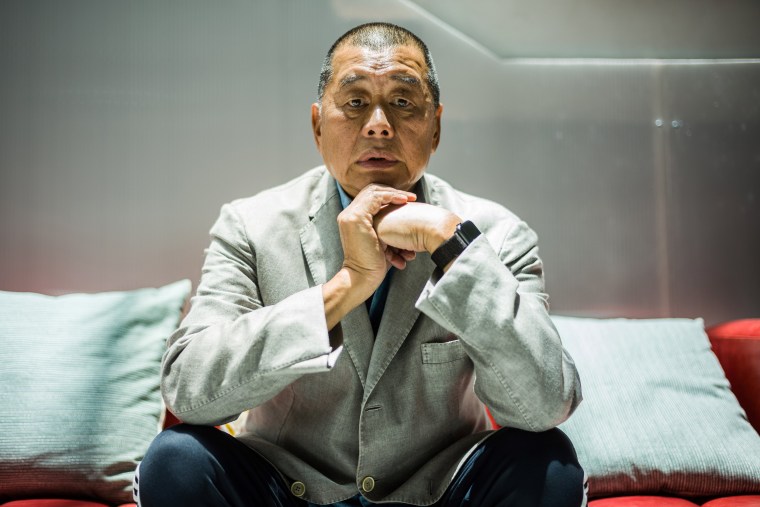
Jimmy Lai and others flocked to Hong Kong because of the freedom it offered and “built it into what it is today,” he said. “Once that rule of law goes , once the law becomes arbitrary and that protection is no longer granted, then Hong Kong loses its … competitive advantage,” he said.
“If it doesn’t recognize that the reason why it was so successful was because of all the freedoms that it had, then there’s no hope for Hong Kong,” Sebastien Lai added.
Following the Covid pandemic, China has sought to bring businesses and tourists back to Hong Kong with a major promotional campaign, but the city has been plagued by an exodus of qualified workers and wealthy residents in recent years.
When the United Kingdom handed Hong Kong over to Chinese rule in 1997, the 1984 Sino-British Joint Declaration was supposed to guarantee full autonomy for Hong Kong except in foreign affairs and defense. But Hong Kong’s special status has gradually eroded and in June 2020, Chinese authorities imposed a sweeping national security law that has been used to stifle dissent and press freedom, according to rights groups.
Liu Pengyu, spokesperson for the Chinese Embassy in the United States, said Jimmy Lai had sought to destabilize Hong Kong and incited violence and that those who violate Hong Kong’s laws “will be held accountable.”
“The facts of his violation of the national security law are clear. His case was handled in accordance with law in Hong Kong, and has nothing to do with freedom of the press and speech. Since the promulgation of the national security law for Hong Kong, the local society regained order and vitality,” he said.
“The lawful rights of the residents in Hong Kong are better protected,” the spokesperson added.
Lai and his father’s international legal team have traveled to Washington, the United Nations headquarters in New York, and Britain in recent days to focus attention on the case, which has drawn widespread condemnation from human rights and press freedom advocates.
Although Jimmy Lai is a British national, the U.K. government has come under criticism from his son and human rights groups, who say London has failed to forcefully condemn the media tycoon’s imprisonment to avoid jeopardizing trade with China.
The way the British government has “danced around the case is very disappointing, to say the very least,” said Maya Wang, associate director in the Asia division at Human Rights Watch.
British Foreign Secretary James Cleverly raised Jimmy Lai’s case when he met with Chinese officials during a visit to Beijing last month, according to the British government.
Calls for Britain to take a tougher stand on Jimmy Lai’s case coincide with growing internal criticism of Prime Minister Rishi Sunak’s China policy and revelations that a parliamentary researcher on China for Sunak’s Tory party may have been spying on behalf of Beijing.
Some members of his own party argue that the Sunak government should label China as a “threat” to the U.K. instead of a “systemic challenge.”
Asked about Jimmy Lai’s case, a spokesperson for the British Embassy in Washington said the U.K. wanted to see Hong Kong authorities uphold the rule of law and comply with international standards.
“British national Jimmy Lai’s prosecution has been highly politicized. Mr. Lai and others are being deliberately targeted to silence criticism under the guise of national security,” the spokesperson said.
Anne-Marie Trevelyan, the British minister for the Indo-Pacific, met Sebastien Lai last week to continue discussions of his father’s case, the spokesperson added.
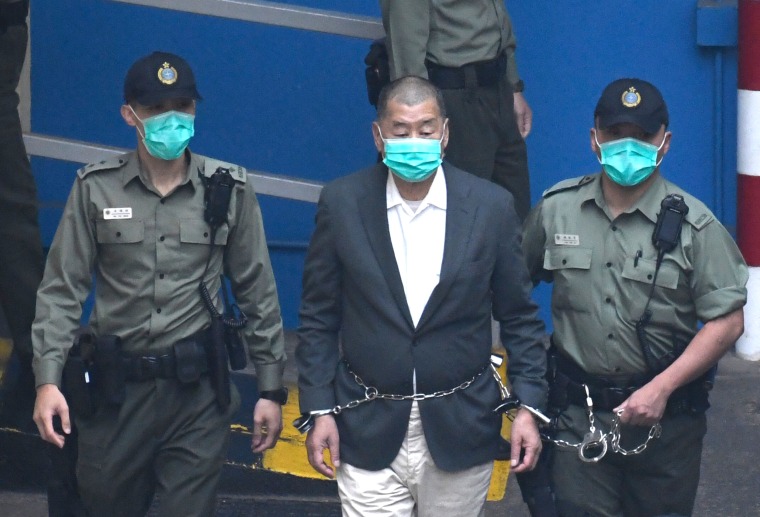
A famous figure in Hong Kong, Jimmy Lai embodies the city’s once free-wheeling, open-market climate before China asserted tighter control over the former British colony. Lai worked in a garment factory as a child and eventually created his own successful clothing line. After the crackdown on 1989 Tiananmen Square democracy protesters, he founded the pro-democracy newspaper Apple Daily in Hong Kong.
Lai’s blunt, entrepreneurial style resonates with many in Hong Kong, and “that kind of freedom is essentially what Hong Kong was and what the culture of China could have been,” Wang of Human Rights Watch said.
Police raided the Apple Daily offices in 2021, and eventually forced the popular paper to close down.
After the vast pro-democracy demonstrations that swept across Hong Kong four years ago, Chinese authorities have placed a priority on prosecuting prominent democratic voices, especially Jimmy Lai, whom they portray as a conspirator under the influence of outside powers trying to undermine China, according to human rights advocates.
Under the new national security law imposed on Hong Kong, Lai is awaiting trial for alleged sedition and other offenses related to his pro-democracy campaigning and publishing. If convicted, he will likely be in prison for the rest of his life, according to his international lawyers.
Chinese authorities have effectively barred Lai from choosing a British lawyer, Tim Owen, from representing him.
The national security trial was initially due to begin in December last year and was pushed back several times. It is now due to start Dec. 18. One of Lai’s international lawyers, Jonathan Price, said Chinese authorities appear to be delaying the trial because they are struggling to build a case, and are wary of granting Lai any kind of platform to express his views on democracy.
“If they had a strong case, they would present it in court,” Price said.
Source: | This article originally belongs to Nbcnews.com
